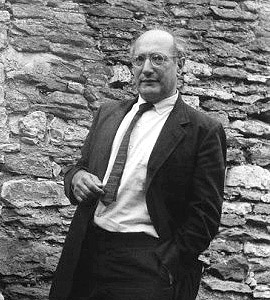A Quote by Doris Lessing
When a white man in Africa by accident looks into the eyes of a native and sees the human being (which it is the chief preoccupation to avoid), his sense of guilt, which he denies, fumes up in resentment and he brings down the whip.
Related Quotes
When a man sees a dying animal, horror comes over him: that which he himself is, his essence, is obviously being annihilated before his eyes--is ceasing to be. But when the dying one is a person, and a beloved person, then, besides a sense of horror at the annihilation of life, there is a feeling of severance and a spiritual wound which, like a physical wound, sometimes kills and sometimes heals, but always hurts and fears any external, irritating touch.
This is a man with an old face, always old... There was pathos, in his face, and in his eyes. The early weariness; and sometimes tears in his eyes, Which he let slip unconsciously on his cheek, Or brushed away with an unconcerned hand. There were tears for human suffering, or for a glance Into the vast futility of life, Which he had seen from the first, being old When he was born.
Existential psychotherapy is the movement which, although standing on one side on the scientific analysis owed chiefly to the genius of Freud , also brings back into the picture the understanding of man on the deeper and broader level man as the being who is human. It is based on the assumption that it is possible to have a science of man which does not fragmentize man and destroy his humanity at the same moment as it studies him. It unites science and ontology .
Like the eye which sees everything in front of it and never sees itself, faith is occupied with the Object upon which it rests and pays no attention to itself at all. While we are looking at God, we do not see ourselves - blessed riddance. The man who has struggled to purify himself and has had nothing but repeated failures will experience real relief when he stops tinkering with his soul and looks away to the perfect One.
My conception of the audience is of a public each member of which is carrying about with him what he thinks is an anxiety, or a hope, or a preoccupation which is his alone and isolates him from mankind and in this respect at least the function of a play is to reveal him to himself so that he may touch others by virtue of the revelation of his mutuality with them. If only for this reason I regard the theater as a serious business, one that makes or should make man more human, which is to say, less alone.
It is the poet and philosopher who provide the community of objectives in which the artist participates. Their chief preoccupation, like the artist, is the expression in concrete form of their notions of reality. Like him, they deal with the verities of time and space, life and death, and the heights of exaltation as well as the depths of despair. The preoccupation with these eternal problems creates a common ground which transcends the disparity in the means used to achieve them.
Our age is one in which usefulness is thought to be the chief merit of nature; in which the attainment of power, the utilization of its resources is taken to be the chief purpose of man in God's creation. Man has indeed become primarily a tool-making animal, and the world is now a gigantic tool box for the satisfaction of his needs.
If Reince Priebus is, in fact, the chief of staff and operating as chief of staff, he is the most important staffer the president Donald Trump has. And it is not unusual for a president to set up some competing power centers, as Ronald Reagan did, but there`s nothing like being the chief of staff, which has so much say over what the president reads, who the president sees, who`s the last person the president talks to before he makes a decision.
When we hold onto the negative in ourselves it comes with endless guilt. We hold onto a lifetime of floating visions and regrets about what we should have done or should have become. Conscience recognizes wrong and tries to atone. But guilt turns into resentment. Conscience brings us closer to each other; guilt drives us apart. Create a new feeling. Every time guilt settles in your stomach, write "I forgive" on a piece of paper. Send it up the chimney, tear it up and flush it, put it in the garbage. Don't eat it.
Every man, in proportion to his virtue, considers himself, with respect to the great community of mankind, as the steward and guardian of their interests in the property which he chances to possess. Every man, in proportion to his wisdom, sees the manner in which it is his duty to employ the resources which the consent of mankind has intrusted to his discretion.







































